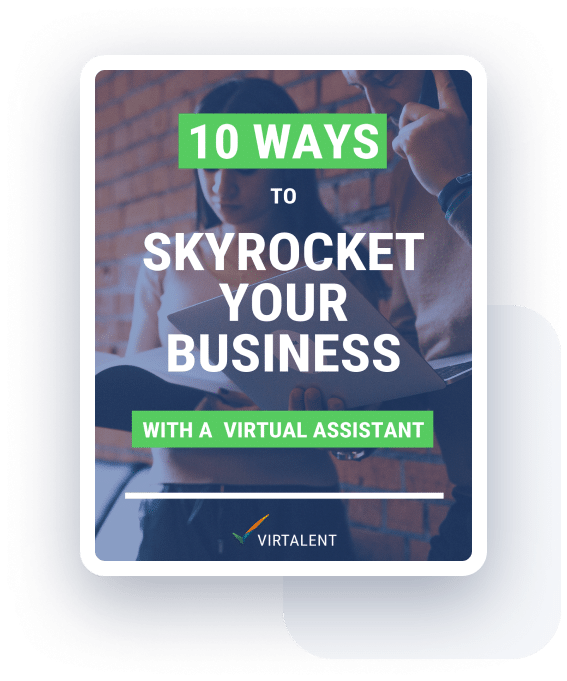Finding a way to finance your small business as it grows, gradually transforming it from a tiny seedling into a thriving brand that touches on the lives of hundreds, then thousands, of people, is tough. It’s probably the most challenging thing you’ve done. Ever.
But there is an easier way. Instead of keeping your costs to the bare minimum and purposely keeping your aspirations ‘realistic’, why not simply think a little bigger? Why not think a lot bigger?
You might not believe it, but the world is stuffed full of cash. From global banks to small angel investors, there are plenty of people desperately looking to put their own bank balances to better use. Take it off their hands!
Have you proven your business model works? Is it scalable? Then chances are, these people will happily give you the financial resources you need to take it to the next level (and more). That means new marketing campaigns, new staff, new offices and a whole lot more fun stuff to fill your working week with. It just takes you to go out there and ask for it!
Let’s explore the different finance options available to finance your small business or new start-up.

Knock On Your Bank’s Front Door
If you’re an established business with a good trading history, the first place you should head is your bank. If not, check out Start Up Loans.
First, let’s clear something up. Debt is not something to be scared of, if used wisely. The mainstream media pushes equity investment as the only way to grow a “serious” business, but it is much, much cheaper to visit your bank and any investor worth their salt will tell you to go there first too (or do both!).
Let’s take an example
If you borrow £50,000 at 7% APR, repaid over 5 years, you’ll repay just under £60,000 including the £10,000 interest. But sell a £50,000 stake in your business? If your investor looks for the typical 5-7 x return on their initial stake, you’ll be buying them out of your business at the end of those same 5 years for £250- 350,000. Ouch!
Your mate, Dave, might tell you that “banks never lend to anyone”, but that’s an expensive assumption to make for your business. Have you actually tried? You might be surprised at how quick and easy the process is to secure the finance you need!
Most banks place a default lending cap on your account. This is typically in the region of £10-50,000, depending on how credit worthy they deem you to be based on your account history alone. This cap is usually generous and plenty to get started with for most small businesses. If you want to borrow below the cap, their policies usually mean you can complete all paperwork online and don’t have to book an appointment with a Bank Manager. If it exceeds that, you just have to book a session to go through your plans in more detail. Simple.
The two main sources of finance from your bank will be a loan or an arranged overdraft. Both are likely to require some kind of personal guarantee from you as the Company Director, if it’s more than a few thousand pounds.

Loans for one-off purchases
Best used for capital purchases or large outlays which require you to make a large one-off payment now, for you to then see the positive impact on your company in the following months and years to come. This could be machinery, equipment or vehicles, or a larger office, for example. You’ll receive the payment in one lump sum, then make repayments afterwards.
A bank loan will usually be the cheapest source of finance available to finance your small business, beside reinvesting existing profits.
Overdrafts to boost your cash flow
Best used to boost your cash flow when you know that you’ll be increasing your costs over a number of months. You’ll be given an overdraft limit and can dip into it as much as you need. Perhaps you’re launching some new ad campaigns or want to rebrand?
The benefit of this choice is that you only pay interest when you are actually using the overdraft. That could mean you dip into your overdraft by £5000 for 10 days one month and then £3000 for 7 days the following month, only paying interest for those days you’re overdrawn and only on those amounts, not on the full limit of the overdraft.
Overdrafts typically have a slightly higher APR, but because of this structure it can often be more cost-effective if you don’t have a large one-off outlay to pay for and are more concerned about the impact of any increased costs on your day-to-day cash flow.
P2P: Get Strangers To Lend You Money
P2P or “Person to Person” lending is a modern alternative to asking your bank for a loan and is a very smart way to finance your small business today.
Essentially a P2P lender is a marketplace, grouping private lenders looking to get better interest rates on their hard-earned savings with businesses like yours looking to finance their expansion plans. Cutting out the banks and relying on technology to faciliate the transaction reduces the cost of lending and therefore the cost to you of borrowing that loan.
The most popular of the bunch is Funding Circle – they offer competitive interest rates and have lent billions of pounds since 2010.
They also provide unsecured loans. Though an unsecured loan, meaning the loan is made to your business and you don’t need to provide any personal guarantee, can attract a higher interest rate than a secured one, the attraction is that you aren’t personally liable for it to be paid back if your business goes awry. That might make you feel more comfortable, especially if your expansion plans are ambitious and you can’t expose your own personal finances to such risk.
As well as this, though banks are catching up, the process to secure financing from P2P lending is also usually quicker and easier than dealing with a bank. You can often apply and have a decision within a matter of hours.

Pitch To Impress: Finance Your Small Business With Your New Guardian (Money) Angel
Sometimes parting ways with a slice of your business is the best way to attract the cash you need. Perhaps you’ve only just scribbled your new idea on the back of a beermat and now need to get started? Or maybe you want to “go hard or go home” and need access to more money than a bank would sanely lend you.
Angel investors earn big money because they invest big money. Not in proven, established businesses with heaps of profits coming in each month, but often in new, fledgling ideas that might not work out. For every business they invest in, just a few of those will work out well. That means the return they’re looking for needs to cover both the money they have spent across their portfolio and then reward them for the exceptionally high risk they are taking by investing in you.
So the money is expensive. However, if you go in with your eyes open to that fact, angel investment can often make a very good choice for many start-ups looking to scale up and prove their worth in the market.
Here’s why
- You can get financing for new, untested ideas.
- You can get access to much larger sums of money.
- You can move quickly. Instead of patiently waiting for your bank to expand your credit line or for you to see more sales coming through the door, you can spend big money right away. Going into rapid attack mode might stop your competitors creeping up on you and stealing your sunshine.
But, most importantly, you get access to the advice, experience and contacts brought by the investor and their team. With most equity raises, you’ll have a whole group of smart investors pitching in with both their money and their expertise.
There is no way to know just how much value this can bring to the table. Sure, selling a stake in your business is going to cost you, but perhaps the value that investor adds is (quite literally) worth its weight in gold and this extra cost is covered several times over by the much bigger company you’re left with at the end of the day?
The same applies to Venture Capitalist firms (VCs). These generally make larger investments in larger, more established companies at a better cost to you (because there is less risk to them in making the investment). But think with the same logic here – do you need money on its own or could you growth hack your company’s expansion plans with the network and insights brought by an expert VC?
Where to find them
If you’re looking for seed investment to get you off the ground, you can often find private angel investors through local consortiums (ask your city’s Chamber of Commerce). Some VC funds will also make smaller investments in newer start-ups, though sometimes on the condition that you can raise a percentage of the stake elsewhere too. It’s an exciting way to finance your small business if you’re looking to move quickly from day one.
Make sure to look online too – web platforms aren’t only for crowdfunding. Take a look at Angel’s Den for a smart way to connect with angel investors looking for early stage businesses to add to their portfolios.

Crowdfund Your Way To Success
Of course, we also have crowdfunding. Yet another way to finance your small business, especially if you have a new product to get to market. Who hasn’t heard of the likes of Kickstarter and Indiegogo?
Crowdfunding platforms help you pitch and launch your product to an audience of millions of trendsetters, all looking to buy from innovative new start-ups like yours. But competition is fierce, so everything from your promo video to the rewards you give to backers has to be spot on.
The best bit about crowdfunding is that you don’t give away equity. You’re getting preorders from real customers, who will also hopefully buy from you again if they like the initial product. Some product start-ups do set up campaigns so successfully that, despite sometimes asking for as little as £5,000 in backing, they can see commitments exceeding hundreds of thousands and sometimes into the millions.
Draw On Your Existing Resources
All this talk of investment and debt financing is exciting, but so many business owners overlook one key asset: their company! Hold on a minute. Finance your small business, with your… business? Yes, and it’s not rocket science.
If you already have a business with an existing client base, before you sign on any dotted lines you should take a look at what you can do to secure the cash you need much closer to home. Even if you also draw on external financing, reinvesting your profits is the cheapest (free!) way to do get some or all of the finance you need.
“But my profits are too small!” I hear you cry. Perhaps you could:
Reduce your costs?
Perhaps there are some overheads that you could bring down or scrap altogether to make your business run more efficiently.
Increase your costs (short-term)?
You might be able to automate or outsource a number of tasks, which may mean an initial outlay (e.g. more software) but over time would make the business more efficient.
Reduce your salary?
Yes, you’re the business owner, but that doesn’t necessarily mean you have to take home the biggest pay cheque. Sometimes it quite literally pays to think a little more long-term and put the finance your small business needs first instead. Perhaps you could reduce your take-home pay for a few months, if you could survive on a little less, so you can invest the money in scaling up? Further on down the line, that decision could mean your salary is much higher. Remember, your business is also an asset that you own and can sell for a tidy sum later down the line – are you adding to its valuation or taking short-term decisions that put personal profits before growth, which ultimately keep that valuation from going up?
Turn to your existing customers?
Most business owners spend a lot of time thinking about how brand new customers can help them grow their revenue, but what about the clients you already support? Perhaps you could be doing more for them – helping them to buy more from a supplier they already know and trust – or, if cash flow is your concern, why not incentivise them to pay earlier? One idea is to offer a discount on bulk orders of your product or prepaying in advance for your service. If you offer a monthly retainer, perhaps some of your more cash-rich customers would take advantage of a better deal from you if they prepaid for 6 or 12 months up front? It’s a win-win!
Raise Your Expectations
These are just some ideas. Of course, you could take a risk and turn to your friends and family. Or maybe you could even make use of business (or even personal) credit cards for more short-term cash flow needs.
The key takeaway is to first raise your expectations: if you feel like you could be squeezing a little more out of your business or think you’re on to the next big idea, there are plenty of ways to get access to the finance your small business needs. Many company owners just don’t think about this and then, importantly, make an attempt to make it happen!
Going to get the finance your small business needs in place? Looking to scale up? A Virtual Assistant can help you better leverage your time, so you stay focused on strategic, extra value-adding work whilst they take care of the rest.
Book a free consultation today!






Recent Comments